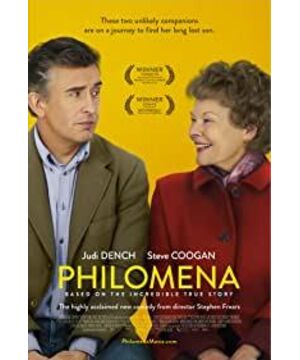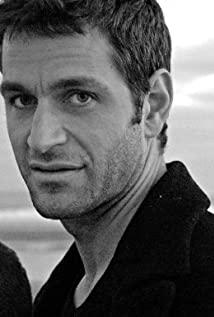The film tells the story of a mother looking for her son 50 years later. In Ireland in the 1950s, it was still a shame to have a child out of wedlock. The woman named Philomena was sent to the monastery by her family because of this shame, and because she did not have enough money (£100) to pay the monastery's shelter. , so he must work in the monastery for 4 years, and at the same time sign an agreement to give up custody of the child. But the child was in the monastery before the adoption, and the mother has an hour to spend with the child after a hard day's work every day, so you can imagine how the mother would be heartbroken when the 3-year-old child was adopted... It's a spoiler, anyway, it's a story about finding a child in a thousand miles.
But the story is well told. First, the rhythm of the film is well grasped, and there is basically no British humor when people feel bored; second, the filming is very warm, about mother's love, about separation, which makes me superficial in several places; There's quite a bit of room for thought, like about "forgiveness." Philomena, who believed that she had committed a shameful crime, "voluntarily" abandoned her child because of Catholic teachings. She also encountered many obstacles from the church on the way to find her relatives. In the end, she failed to see her son during his lifetime and told him that he was not being Abandoned, she has always loved him. However, when the reporter questioned the nun angrily, she stopped the reporter and said, "I forgive her." When the reporter found it incomprehensible, and probably thought that the old woman was ignorant and stupid by religion, she said, "You are so angry, so you must be tired.
" Women are not weak, but extraordinarily strong. This story of Qianli Xunzi is also a story that explores "there is something more important than intelligence".
View more about Philomena reviews











